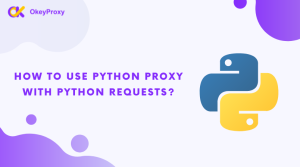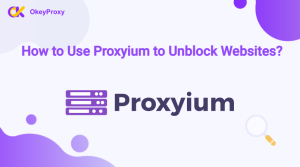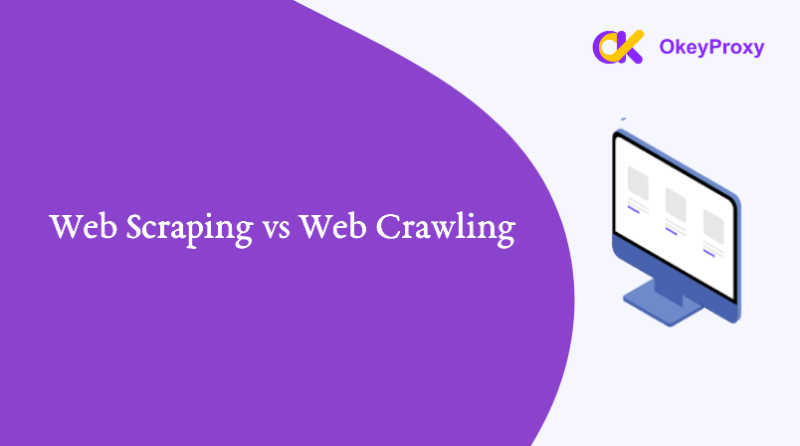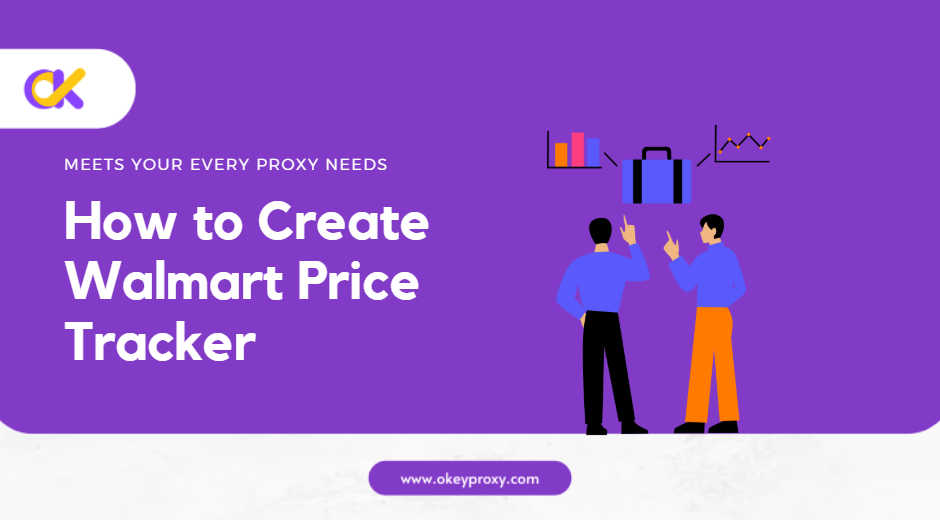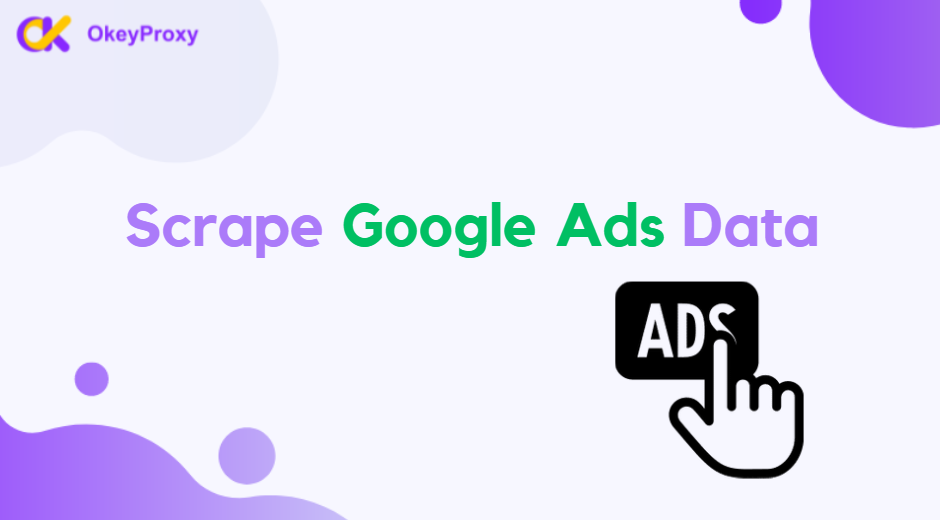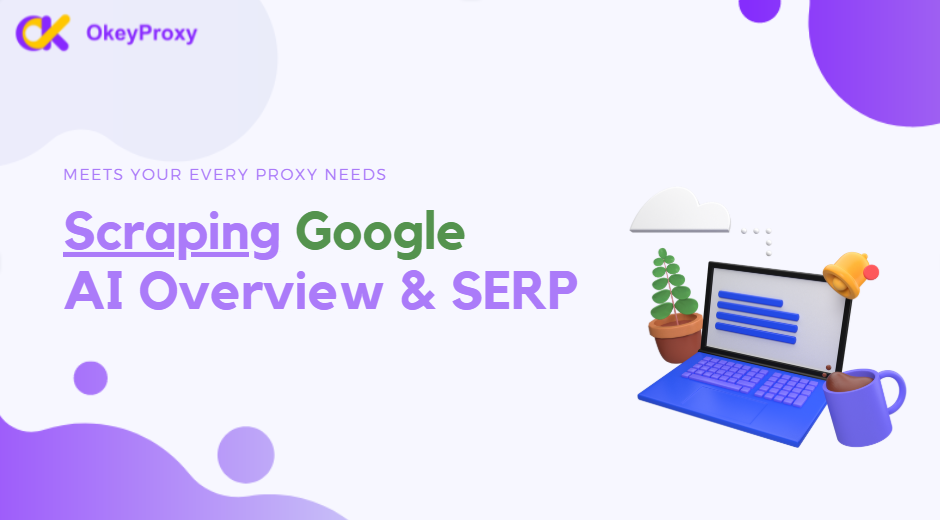As a powerful tool for extracting large amounts of data from the internet, web scraping has revolutionized the way businesses gather and analyze data, providing them with valuable insights that drive decision-making processes. However, effective web scraping often requires the use of a specific tool: a scraping proxy.
From this article, we’ll take a look at what is proxy scarping, why use proxies for web scraping, types of web scraping proxy, and how to use proxy for web scraping.
What is a Scraping Proxy?
A scraping proxy is a server that acts as an intermediary between a web scraper (the client) and the website being scraped. When a scraper sends a request to a website, it goes through the proxy server first, which then forwards the request to the website. The website’s response also passes through the proxy before reaching the scraper. The primary purpose of a scraping proxy is to mask the scraper’s IP address, thus protecting the scraper from being detected and blocked by the website.
Porquê utilizar Proxies for Web Scraping?
There are a few reasons why using a scraping proxy is essential for efficient web scraping:
- Anonymity: As mentioned earlier, a scraping proxy provides anonymity by hiding the scraper’s real IP address. This anonymity is crucial because websites often block IP addresses that send too many requests within a short period, suspecting them to be bots.
- Overcoming Geo-Restrictions: Some websites restrict access based on geographic location. A scraping proxy can help bypass these restrictions by routing your requests through a server in an allowed location.
- Parallel Scraping: Using multiple proxies allows for parallel scraping, i.e., sending multiple requests to a website simultaneously. This approach significantly reduces the time required to scrape large amounts of data.
- Reducing the Risk of Being Blocked: By rotating between different proxies, you can distribute your requests over multiple IP addresses, reducing the likelihood of any single IP address being blocked.
Types of Web Scraping Proxies
There are several types of proxies for web scraping you can use, including:
- Proxies de centro de dados: These are the most common type of proxy. They are not affiliated with ISPs and are instead provided by a third-party service, giving you a private and anonymous IP address. While they are faster and more affordable than residential proxies, they are also easier for websites to detect and block. And there’s a higher risk of being flagged and blacklisted by certain sites.
- Procurações residenciais: These are IP addresses provided by Internet Service Providers (ISPs) to homeowners. They are highly anonymous and hard for websites to detect or block. They’re known to be more secure compared to proxies para centros de dados and can be more expensive.
- Rotating Proxies: These proxies automatically change the IP address they assign to your requests at regular intervals. This rotation makes it difficult for websites to detect and block your scraping activities.
- Public Proxies: Public proxies are free to scrap and are one of the most accessible options. This is why they are often used by multiple users simultaneously. But they have slower connection speeds compared to private proxies, which makes web scraping more difficult. In addition, public proxies are unreliable and are particularly susceptible to crashes and malicious viruses and attacks.
- Anonymous Proxies: Just as the name says: it keeps your identity anonymous. While a public proxy cannot guarantee the confidentiality of your IP address, an anonymous proxy can. They can be used by multiple users simultaneously like public proxies. However, continued usage depends on the number of current users. Spammers often use anonymous proxies, which can result in the entire proxy being banned for some sites because it uses the same IP address for all users.
- 4G Proxies: 4G proxies are also among the most reliable due to their speed and quality, but they can be much more expensive compared to other proxies. Every time a 4G proxy establishes a new connection, the network operator gives each device a brand new IP address, making it ideal for web scraping as you avoid being blacklisted.
How to Configure Proxies for Web Scraping Tool?
To introduce this, we take Octoparse Scraper as an example. Octoparse distinguishes itself as a potent web scraping tool, renowned for its accessible interface and comprehensive functionality. Its user-friendly point-and-click mechanism allows users to effortlessly extract data from intricate websites, eliminating the need for coding proficiency. Octoparse caters to a wide range of data extraction tasks, boasting features like pre-built templates, cloud-based extraction, API integration, and scheduled scraping for automation. And we will show you how to configure OkeyProxy with Octoparse in detailed steps.
Passo 1: Download Octoparse from the official website.
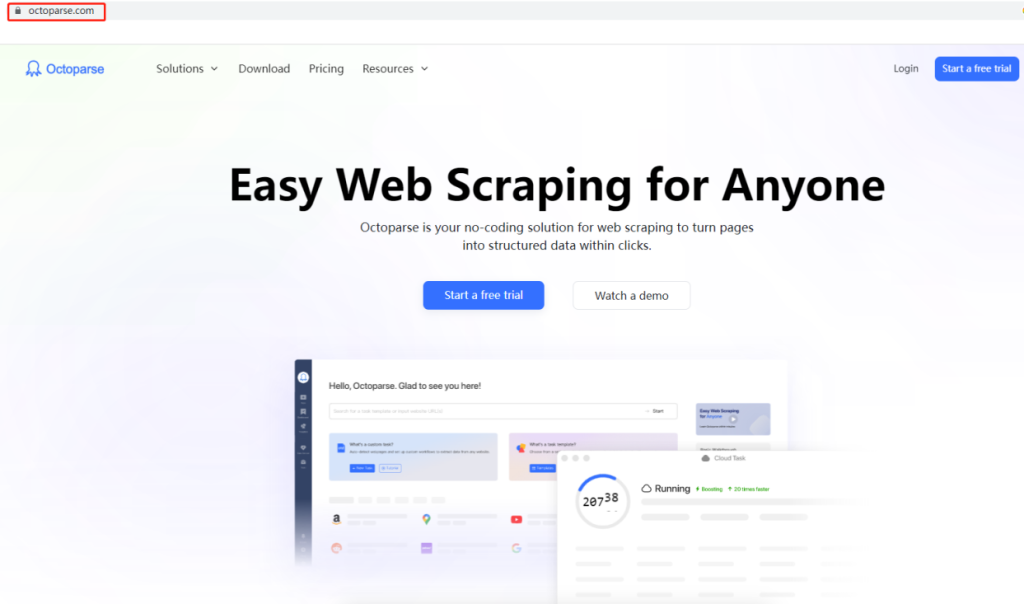
Passo 2: Open the client, and visit the dashboard of the client as shown in the following screenshot.
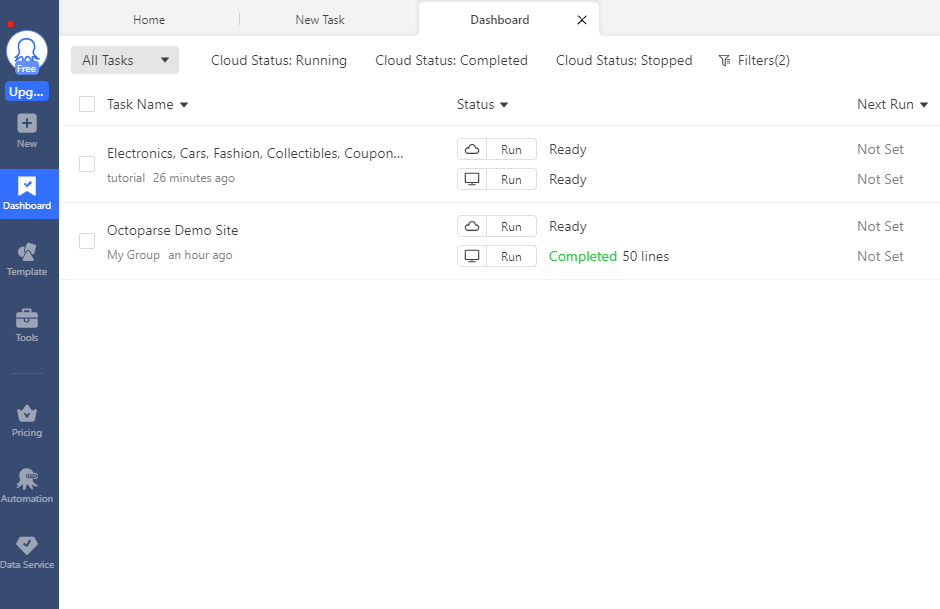
Passo 3: Now click “new”, and go to “custom task” to create a new task.
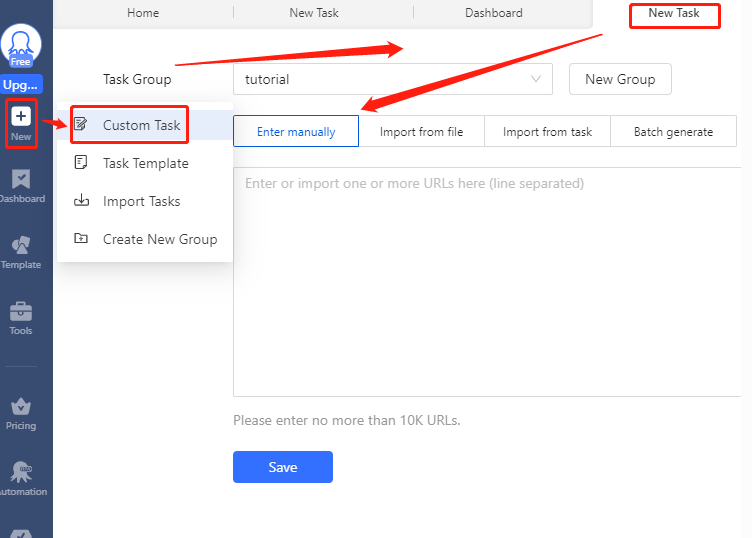
Passo 4: You can enter the scraping URL and click “save” once you’ve done it.
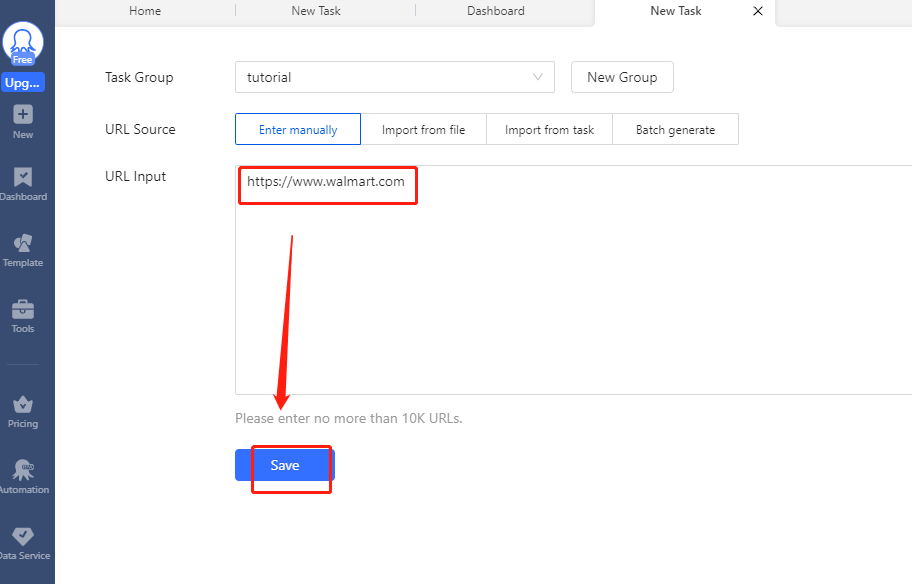
Passo 5: Find “Task Settings” and click it.
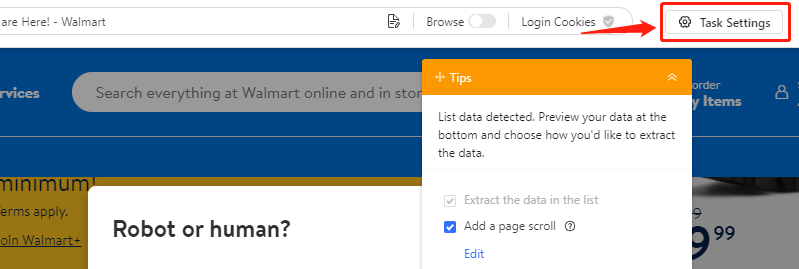
Step 6: Enter into “Anti-Blocking”, then select “Access websites via proxies” > “Use my own proxies” > “Configure”.
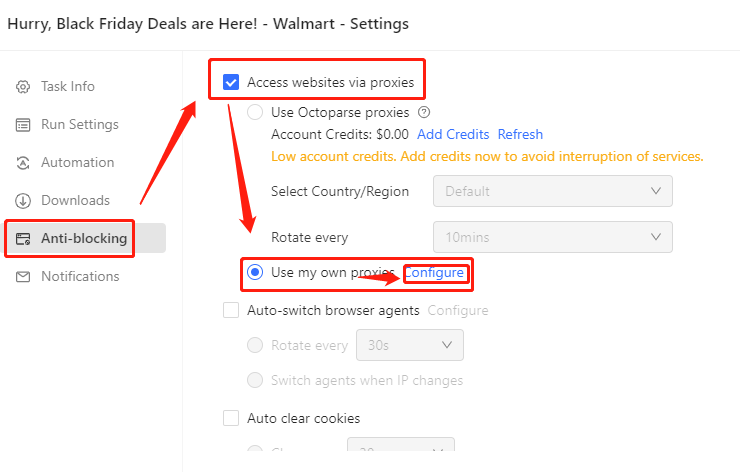
Step 7: Now you can set up the proxy
- Set Switch Time From 1s to unlimited seconds. The default time is 60 seconds.
- Get IP Proxies From OkeyProxy.
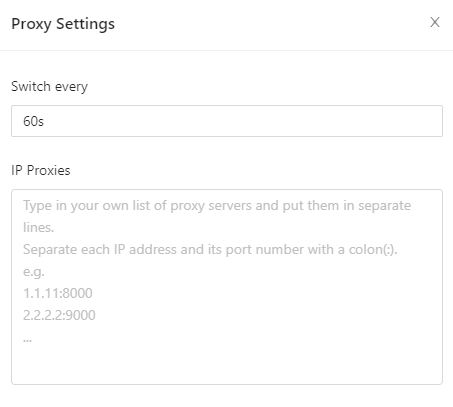
Step 8: Generate IP proxies from Okeyproxy and then copy them, “residential proxies > User Name Password > Endpoint Generator > Stickness > 10(or more) > Generate”.
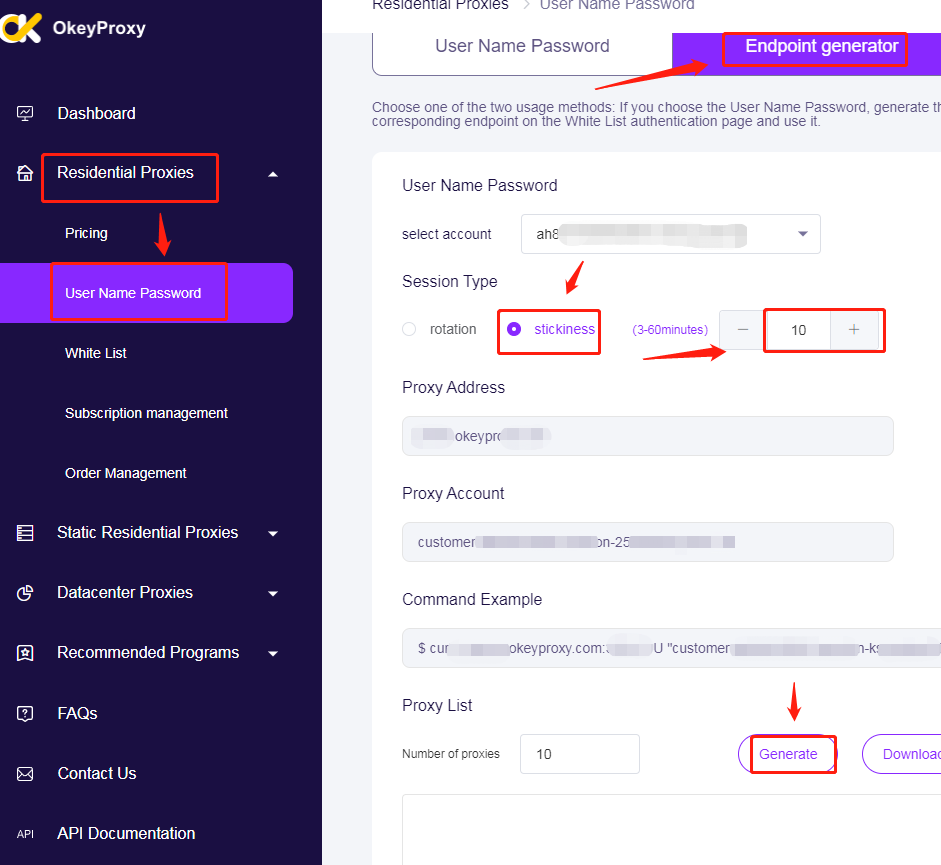
Step 9: Get 10 different stickiness IPs after generating.
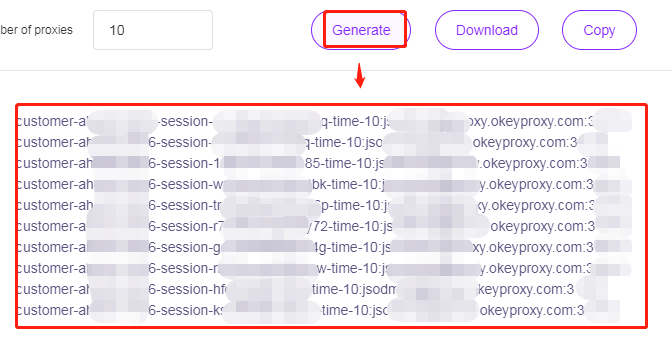
Step 10: You should paste IPs into “IP proxies” in Octoparse proxy setting.
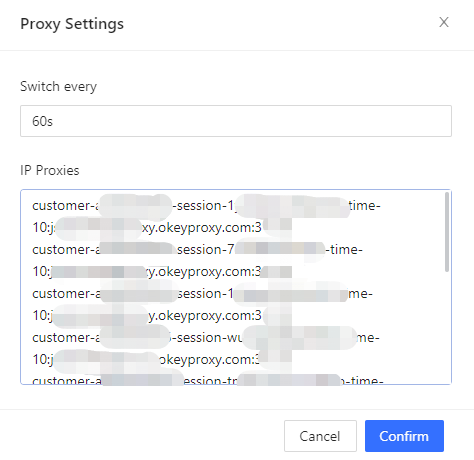
Finally, save the task.
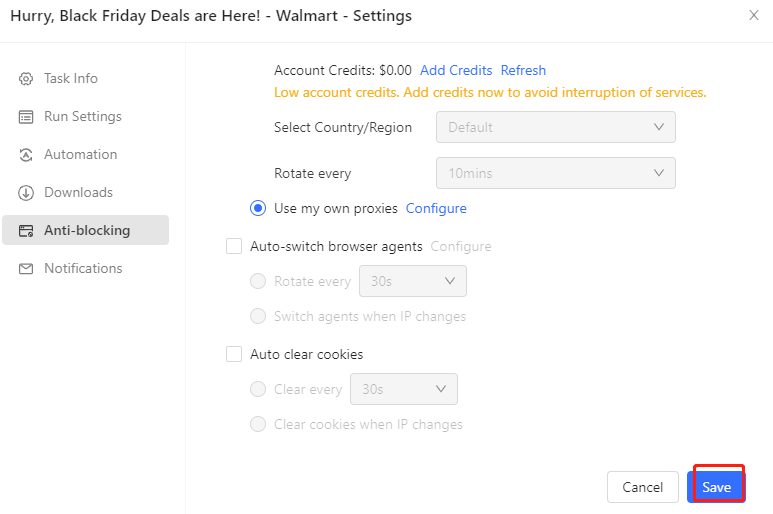
The Best Proxy Servers for Web Scraping
1. OkeyProxy: OkeyProxy is the Top 5 Socks5 Proxies Provider with 150M+ Real Residential IPs and covers over 200 Countries. It’s committed to providing a full range of big data collection services for large/small/micro enterprises in all walks of life. It Supports almost all devices with Windows, IOS, Android, and Linux, and use cases of Antidetect Browser, Emulator, Scraper, etc. It is worth mentioning that you can use it conveniently, and there’s no cost for unavailable IP, the price is fair compared with other proxy servers. Besides, it provides a 1GB proxy free trial to test the product for free.
2. ZenRows: ZenRows is a tool with an excellent advanced web scraping proxy. It is also an all-in-one tool that can handle any anti-bot bypass using rotating proxies, anti-CAPTCHA, and more with just one single API call. ZenRows’ API is equipped with smart residential proxies that make it difficult for websites and anti-bots to detect and blacklist.
Conclusão
Scraping proxies are an invaluable tool for any serious web scraping operation. They provide the anonymity needed to scrape data without being detected or blocked, allow for overcoming geo-restrictions, enable parallel scraping, and reduce the risk of being blocked. By understanding the different types of scraping proxies and their uses, you can select the most suitable one for your web scraping needs and significantly enhance the efficiency and effectiveness of your data extraction process.
Artigo relacionado:
https://www.okeyproxy.com/en/blog/how-to-configure-okey-proxy-with-octoparse-scraper

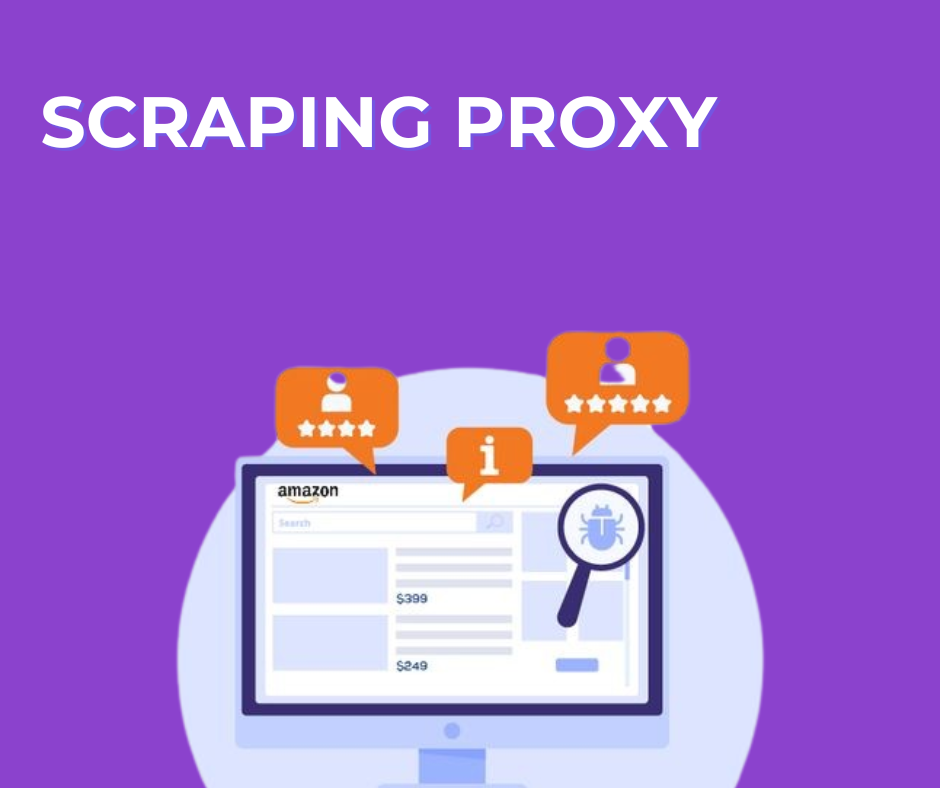
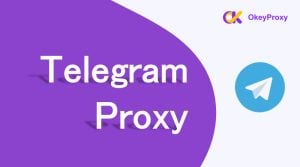
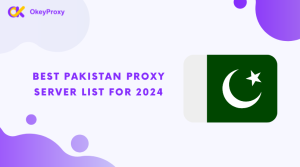
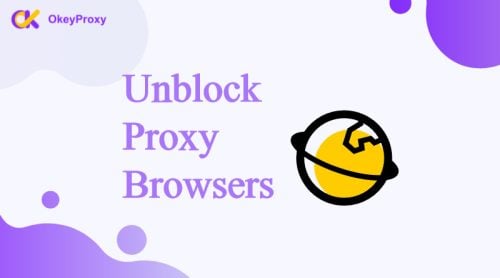
![Como navegar no Browser Proxy [Guia] navegador no navegador proxy](https://www.okeyproxy.com/wp-content/uploads/2025/02/browser-in-browser-proxy-500x278.png)
